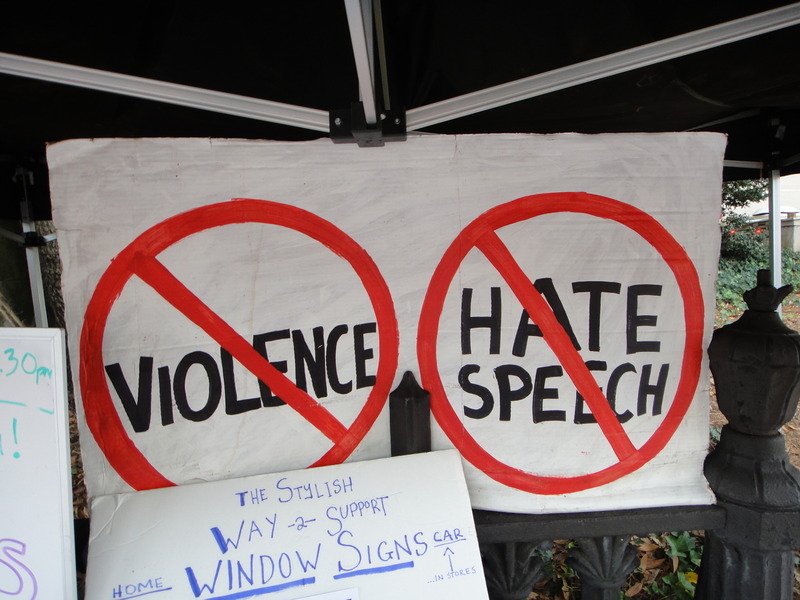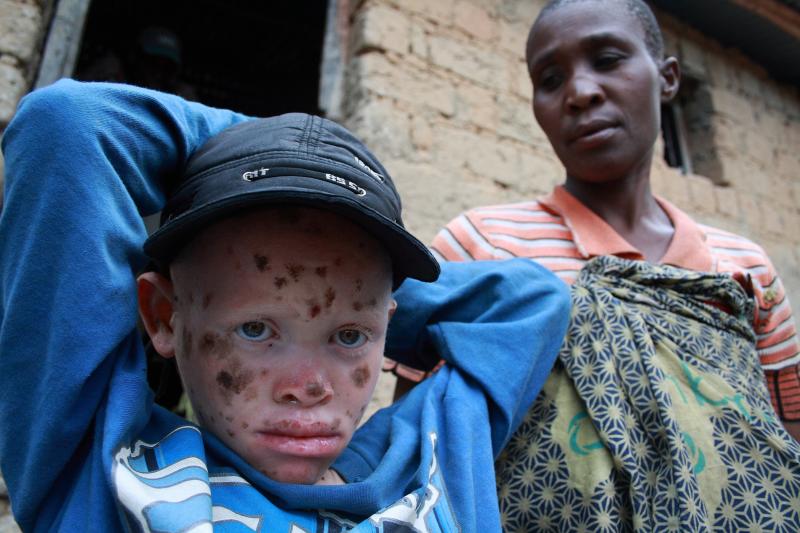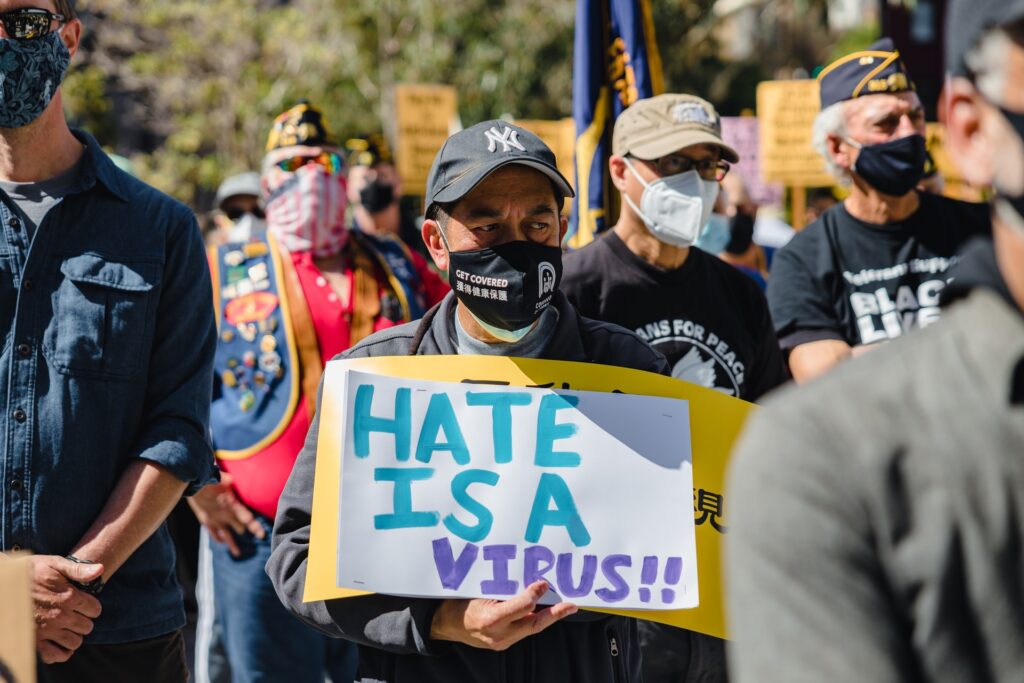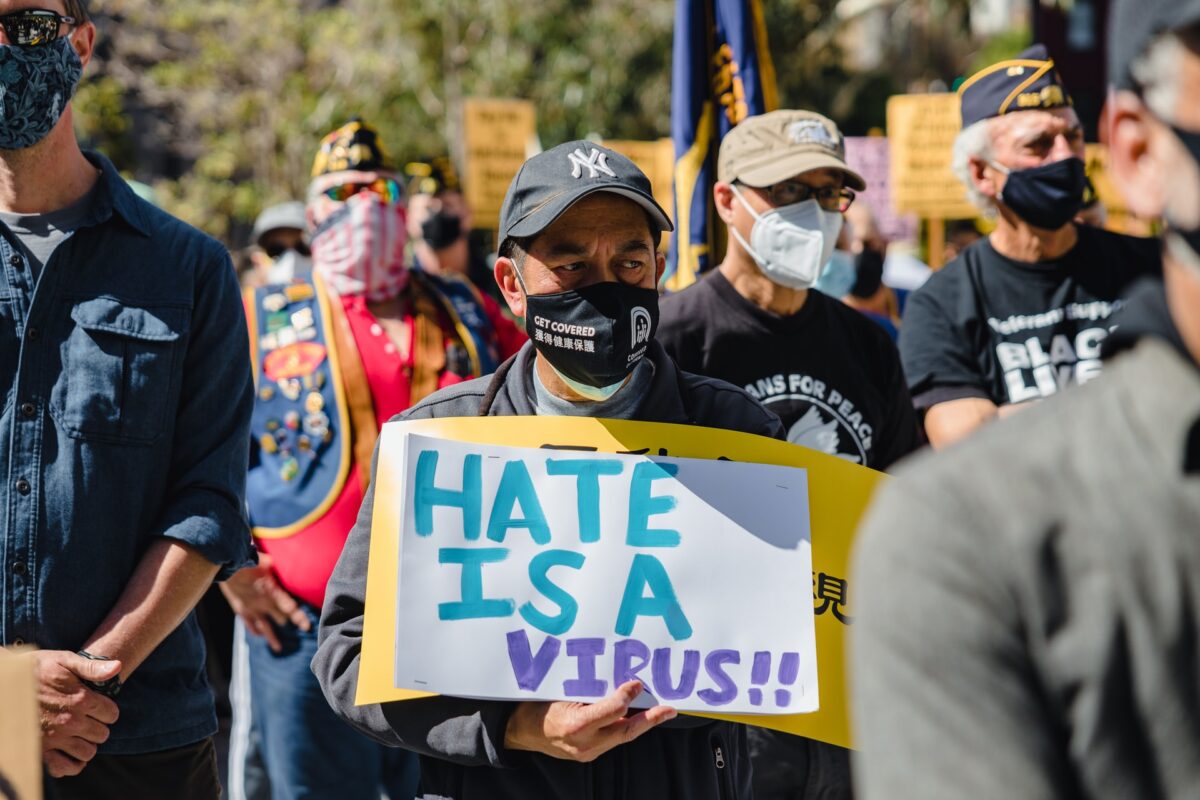That people can dislike, hate, or even target for violence those they see as different or unwanted is an unfortunate human trait which probably goes way back in our history. The reasons for these unacceptable views range widely from skin colour, to race/ethnicity, gender, religion, sexual orientation and others.
Maybe these attitudes are ingrained into us as a species – the perceived need to protect ourselves from what those we are convinced are not like us and hence what whom we believe pose a threat to us – and maybe this way of thinking did serve some purpose tens of thousands of years ago before we created societies and laws and institutions to keep us safe. Then again, maybe not: I am not a sociologist.
Still, I think we all can and should agree that these kinds of worldviews are not welcome in the 21st century: after all they led to genocides in Turkey (the Ottoman slaughter of Armenians), Germany (the Holocaust), Ukraine (the Holodomor) and Rwanda (Hutus killing Tutsis) in the 20th century alone. The problem of what to do about this scourge is less clear: who decides what exactly constitutes hate is rife with challenges as the lines are almost always blurred (one person’s ‘hate’ is another’s ‘strongly held opinion’). Differences in beliefs may indeed at times be very, very strong but that does not justify using the label of ‘hate speech‘ to target those whose ideas you are not keen on.

So what does all this have to do with terrorism? Simple. Unfortunately, we are witnessing these days a significant blurring of the concepts of hate and terrorism.
On June 23 a knife-wielding man attacked two young women wearing hijabs in St. Albert, near Edmonton, Alberta. Fortunately the masked assailant did not kill either, although he did knock one unconscious and placed a blade against the throat of the other all while yelling racial slurs. Police also stated that some of his comments ‘focused on religion‘ (no further details at this point).
The RCMP in St. Albert are investigating this as a hate crime (the Canadian Criminal Code does NOT define a hate crime per se – there are provisions for hate propaganda and genocide – but does allow, under section 718.2, for sentencing to take into consideration “evidence that the offence was motivated by bias, prejudice or hate based on race, national or ethnic origin, language, colour, religion, sex, age, mental or physical disability, sexual orientation, or gender identity or expression, or on any other similar factor”).
Domestic Terrorism?
Despite the almost complete lack of information at this point, the Mayor of St. Albert, Cathy Heron, called the attack an act of ‘domestic terrorism‘. A similar move was made a few weeks ago in London (Ontario) where on June 6 a 20-year old man deliberately ran over a family of five, killing four: the Prime Minister, among others, almost immediately designated it also as an act of domestic terrorism (in this case the Crown did decide to lay terrorism charges a week later: the case is still before the courts) before anything concrete was known. One can fairly ask whether our political masters’ ill-considered conclusions influenced the decision on what charges to lay (which of course should depend solely on evidence available).
It seems that everyone is throwing the word ‘terrorism‘ around these days, often with no real basis for alleging a terrorist act, in order to denigrate those you do not like (here are examples in Pakistan and Haiti: in China authorities seem to think that all Uyghur Muslims in Xinjiang Province are (potential) terrorists). This is highly problematic from a few standpoints.
First and foremost
It makes the assumption that all (or most) acts of violence committed with an element of hate are terrorist in nature. This is a false equivalence. The vast majority of hate crimes are NOT terrorism, at least as the latter is defined under section 83.01 of the Canadian Criminal Code). The easiest way I can think of to put this is that all terrorism is a form of hate but not all hate is a form of terrorism.
Secondly
If we continue to go down this road it is possible that other crimes which are also not terrorist in nature could be seen through that lens. Take street gangs and organised crime for instance. As section 83.01, in addition to the primary definition of terrorism as an act based on a “political, religious or ideological purpose“, also states that terrorism has “the intention of intimidating the public” it is easy to see how gangs and organised crime actors could be seen as terrorists since they DEFINITELY want to intimidate the public. Do we want to go down THAT road?
Thirdly
If we add more and more elements to the growing list of terrorism we put more and more on the plate of agencies such as the Canadian Security Intelligence Service (CSIS – where I was a senior terrorism analyst from 2001-2013) which has a counter terrorism investigation mandate under sections 2 and 12 of the CSIS Act. More and more work without more and more resources is a recipe for disaster. In addition, CSIS does not investigate crimes: that is an RCMP task.
Fourthly
There are good reasons NOT to call these acts terrorism but to treat them as hate crimes. As noted, under current law judges have the aforementioned ability to take into consideration hate motives when sentencing: similar mitigating factors do not apply to terrorism. Similarly, murder and terrorism are treated the same in terms of judicial penalties (life for first degree murder), obviating the need to translate (attempted) murder to terrorism.
The bottom line
We are witnessing a curious and unnecessary obsession with terrorism these days as well as a conviction, in Canada at least, that certain kinds of violent extremism (i.e. far right) merit the lion’s share of our attention (despite the fact that worldwide 99% of all attacks are still perpetrated by Islamist terrorists). While I understand the public’s revulsion at the nature of crimes as we have recently seen in St. Albert and London, we can prosecute them more effectively through other sections of the Canadian Criminal Code. Calling everything terrorism is a bad move.
We really need to get terrorism off our brains!
Read More about Hate Crimes

Why it is so hard to decide what is – and what isn’t – terrorism
Terrorism is not as obvious as it may seem at times. Agreement on what is – and what isn’t – an act of terrorism can be quite difficult.

Hate and terrorism are not synonymous
Calling all serious hate-motivated violent crime ‘terrorism’ is unnecessary, unhelpful and problematic: we need to stop doing this
London truck attack: 2 weeks later, what do we know now?
Phil Gurski talks with CKWR’s John Maciel about the London hit and run incident earlier this month.

